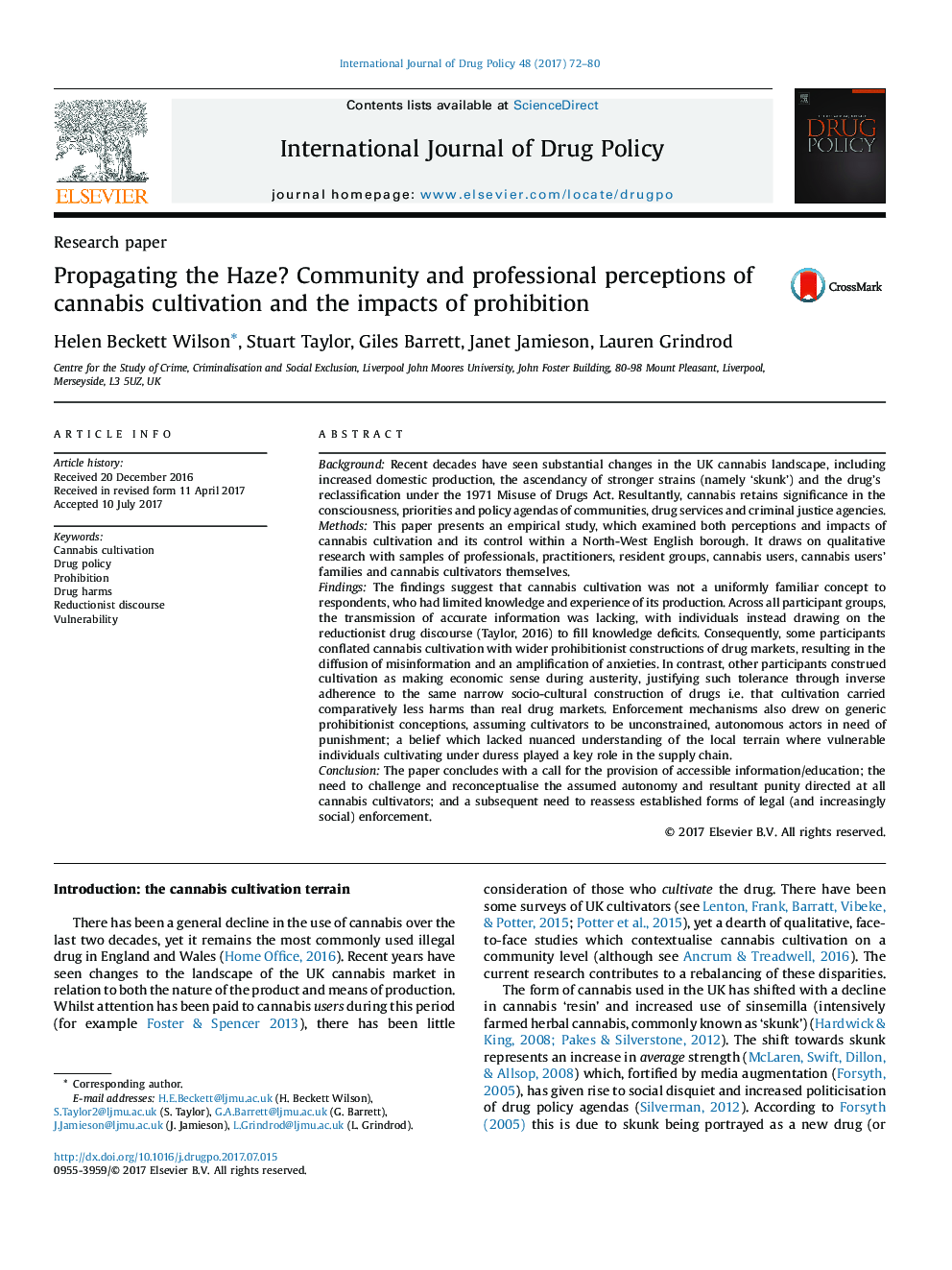| کد مقاله | کد نشریه | سال انتشار | مقاله انگلیسی | نسخه تمام متن |
|---|---|---|---|---|
| 5120768 | 1486257 | 2017 | 9 صفحه PDF | دانلود رایگان |
BackgroundRecent decades have seen substantial changes in the UK cannabis landscape, including increased domestic production, the ascendancy of stronger strains (namely 'skunk') and the drug's reclassification under the 1971 Misuse of Drugs Act. Resultantly, cannabis retains significance in the consciousness, priorities and policy agendas of communities, drug services and criminal justice agencies.MethodsThis paper presents an empirical study, which examined both perceptions and impacts of cannabis cultivation and its control within a North-West English borough. It draws on qualitative research with samples of professionals, practitioners, resident groups, cannabis users, cannabis users' families and cannabis cultivators themselves.FindingsThe findings suggest that cannabis cultivation was not a uniformly familiar concept to respondents, who had limited knowledge and experience of its production. Across all participant groups, the transmission of accurate information was lacking, with individuals instead drawing on the reductionist drug discourse (Taylor, 2016) to fill knowledge deficits. Consequently, some participants conflated cannabis cultivation with wider prohibitionist constructions of drug markets, resulting in the diffusion of misinformation and an amplification of anxieties. In contrast, other participants construed cultivation as making economic sense during austerity, justifying such tolerance through inverse adherence to the same narrow socio-cultural construction of drugs i.e. that cultivation carried comparatively less harms than real drug markets. Enforcement mechanisms also drew on generic prohibitionist conceptions, assuming cultivators to be unconstrained, autonomous actors in need of punishment; a belief which lacked nuanced understanding of the local terrain where vulnerable individuals cultivating under duress played a key role in the supply chain.ConclusionThe paper concludes with a call for the provision of accessible information/education; the need to challenge and reconceptualise the assumed autonomy and resultant punity directed at all cannabis cultivators; and a subsequent need to reassess established forms of legal (and increasingly social) enforcement.
Journal: International Journal of Drug Policy - Volume 48, October 2017, Pages 72-80
